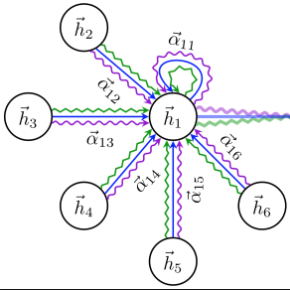Traffic flow forecasting (TFF) is of great importance to the construction of Intelligent Transportation Systems (ITS). To mitigate communication burden and tackle with the problem of privacy leakage aroused by centralized forecasting methods, Federated Learning (FL) has been applied to TFF. However, existing FL-based approaches employ batch learning manner, which makes the pre-trained models inapplicable to subsequent traffic data, thus exhibiting subpar prediction performance. In this paper, we perform the first study of forecasting traffic flow adopting Online Learning (OL) manner in FL framework and then propose a novel prediction method named Online Spatio-Temporal Correlation-based Federated Learning (FedOSTC), aiming to guarantee performance gains regardless of traffic fluctuation. Specifically, clients employ Gated Recurrent Unit (GRU)-based encoders to obtain the internal temporal patterns inside traffic data sequences. Then, the central server evaluates spatial correlation among clients via Graph Attention Network (GAT), catering to the dynamic changes of spatial closeness caused by traffic fluctuation. Furthermore, to improve the generalization of the global model for upcoming traffic data, a period-aware aggregation mechanism is proposed to aggregate the local models which are optimized using Online Gradient Descent (OGD) algorithm at clients. We perform comprehensive experiments on two real-world datasets to validate the efficiency and effectiveness of our proposed method and the numerical results demonstrate the superiority of FedOSTC.
翻译:为了减轻通信负担并解决中央预测方法引起的隐私泄漏问题,联邦学习联合会(FL)已应用于TFF。然而,基于FL的做法采用批量学习方式,使预先培训的模型不适用于随后的交通数据,从而显示次级预测性能。在本文件中,我们进行了首次研究,在FL框架内采用在线学习(OL)方式预测流量,然后提出了一个新的预测方法,名为在线Spatio-时空关系学习联合会(FedOSTC),旨在保证无论交通波动如何提高绩效。具体地说,客户采用基于GRU的常规编码器获取交通数据序列的内部时间模式,然后中央服务器通过图形关注网络(GAT)评估客户之间的空间关系,以适应交通波动造成的空间接近性动态变化。此外,为了改进即将出现的交通数据全球模式的通用化,我们提出了一个时期-时空关系联盟学习联合会(FedOSTC)学习联合会(FedOSTC),旨在保证无论交通波动情况如何提高绩效。具体来说,客户采用GRUE(G)基于G值的编码编码编码的编码编码编码编码编码编码编码,以展示我们的拟议数字系统上的最佳方法,以展示全球数据。



